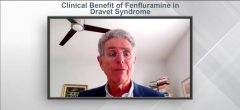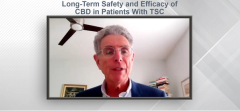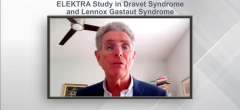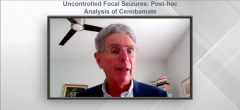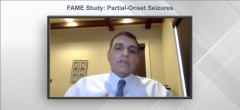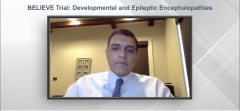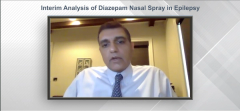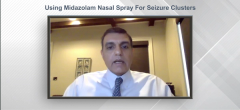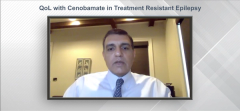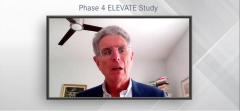
Safety and Efficacy of CBD in Patients With TSC
Episodes in this series

Examining the 4-year results from the expanded access program of the long-term safety and efficacy of cannabidiol (CBD) in patients with tuberous sclerosis complex (TSC).
Trevor J. Resnick, MD: The third study is a long-term efficacy and safety study of cannabidiol, CBD, in patients with tuberous sclerosis complex [TSC], and this looks at a 4-year result, again, through the expanded access program. You can see from the flavor of the abstracts that I’m presenting, we’re talking about medications that have already been approved, are already out in the market, at looking at nuances of where they used specific epilepsy syndromes, and how patients have responded in descriptive studies. In this abstract the first author was Arie Weinstock, [MD].
The early access program was initiated in 2014 for patients with various disorders, but we’re specifically going to be talking about tuberous sclerosis complex in this abstract. The early access program provided open-label CBD to patients with treatment-resistant epilepsies at a number of different centers. These are the results of 34 patients with tuberous sclerosis complex, through January of 2019, with a description of how that group of 34 patients did over the 4- to 5-year period. These patients all received CBD, or Epidiolex, and the dosage range was anywhere from initially 2 to 10 mg/kg per day, up to a maximum of 25 to 50 mg/kg per day, depending on the study site.
The efficacy end points that were evaluated included the percentage change from baseline in convulsive, focal, and total seizures, and the responder rates across the various visit windows through the 192-week follow-up. This is a prolonged follow-up and gives another way of looking at how patients do long term on CBD with this specific epilepsy syndrome. Additionally, the safety end points were also measured by adverse events. When looking at the breakdown, there were 192 patients in the safety analysis set that looks at the expanded access program, but 34 of them had a diagnosis of tuberous sclerosis complex. Of those with tuberous sclerosis, 24% of the patients withdrew, either due to lack of efficacy or adverse events, such as diarrhea and other reasons. The mean age was 12.4 years. When looking at the mean CBD dose, the upper mean CBD dose was 40 mg/kg per day.
One of the additional data points obtained from these descriptive studies is that as opposed to a pivotal study evaluating patients over a short period, sometimes 16 weeks, in these open-label studies that are ongoing, you could look at it over a longer period. In this study, the duration of observation was up to 192 weeks. When looking at the median percentage reduction in seizure frequency during the first 48 weeks, they ranged from about 48% to about 50% for convulsive, about two-thirds for focal, and about 50% for total seizure outcome in the overall pattern. The overall pattern of this response, this responder rate, was maintained through 192 weeks.
The study shows the responders and the median percentage reduction in those various seizure types, but the important point that this study demonstrated was the response in the first 48 weeks, close to the first year, and it was maintained through 192 weeks, over the 4 years. This ongoing access study showed that CBD, specifically in a tuberous sclerosis population, was well tolerated. The adverse event profile was similar to that reported in the other analyses, and the randomized-controlled trial, done by [Elizabeth] Thiele, [MD, PhD,] and published in 2019. The add-on CBD resulted in a sustained seizure reduction in patients with tuberous sclerosis for up to 192 weeks, with an acceptable safety profile. It is an interesting descriptive study, and a long-term descriptive study, of CBD in a specific patient population with tuberous sclerosis.
Newsletter
Keep your finger on the pulse of neurology—subscribe to NeurologyLive for expert interviews, new data, and breakthrough treatment updates.

